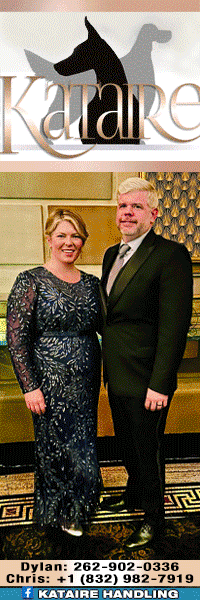When Politics and Veterinary Medicine Collide
To read the complete article click here 274 – September, 2012
by Amy Fernandez
Recently, while I was industriously wasting time glancing around the internet, a story out of Albany caught my attention. The Albany Times Union reported that local resident, 61 year-old Gerard Sagliocca, was facing possible jail time for animal cruelty. Sagliocca and his sister adopted an FIV positive cat, Charmer II, from a local rescue group last November. I’m not the best judge of character, but this detail made them seem rather kindhearted. According to the Times Union, the cat’s condition remained stable for several months, and its quality of life was good until it stopped eating shortly before a fateful vet visit.
After examining Charmer II, the vet recommended immediate euthanasia – rather insistently according to this June 25th story. Instead, they opted to take the cat home. To me, that didn’t sound so strange. When faced with this prognosis, we often hesitate. We want to ask advice, think it over, possibly consult another vet, say goodbye, and mentally prepare ourselves for a potential traumatic event. We have trouble letting go. It’s not unusual. What happened next was unusual.
At the vet’s request, local police went to Sagliocca’s home and – without a warrant or court order – seized the cat and returned it to her. She promptly euthanized Charmer II, and at her insistence, Sagliocca was charged with animal cruelty for ignoring her recommendation. When interviewed, she justified her actions saying that Sagliocca should not have the right to own a cat. To be honest, I regularly run into pet owners who would lose this right if I was running the show. But last time I checked, vets were not legally authorized to make these judgment calls.
Bizarre to say the least, but the pieces started falling into place when I caught the name of this vet. She practices in Albany, but we are unhappily familiar with her abrasive presence here in New York. Over the years, we’ve learned way too much about her political views and vegan lifestyle thanks to her ongoing militant crusade to ban carriage horses. I will not open that big old can o’ worms in this column, but these quaint, costly tours of Central Park remain a prime tourist attraction. ASPCA obsessively monitors their care, and the alternative for 99 percent of these horses would be death. For animal rights proponents, that is the preferred option for all domestic species. Oh yes, this vet has one more notable role. She heads the Humane Society Veterinary Medical Association’s Leadership Council. HSVMA is another Wayne Pacelle brainstorm. It was established in 2008 after AVMA showed them to the door in 2006.
Beginning in 2004, HSUS attempted to ally itself with AVMA, a move that would have given immense credibility to what many feel are questionable positions on many issues. Although AVMA is a professional organization, it is an influential voice regarding a broad range of animal-related public policy issues. This kinky match-up was doomed from the start. To put it mildly, HSUS was never considered an advocate of the veterinary profession. In an August 2009 interview Dr. Ron DeHaven, AVMA Executive Vice President said, “Tugging on people’s heartstrings to raise money is easy. Finding real solutions to animal welfare concerns and the challenges that go with them is not easy. HSUS certainly excels at the former… Mr. Pacelle is ignoring the legitimate concerns, and the perspectives and expertise, of legitimate animal welfare scientists and veterinary experts. And he is misleading the public to further his own organization’s agenda. If Mr. Pacelle truly cared about the welfare of animals, he would not be so quick to criticize and minimize the expertise of veterinarians… A knee-jerk response based solely on emotion, and ignoring all of the relevant science might not be in the best interest of the animals.”
These blunt remarks from a staunchly conservative organization like AVMA were surprising. But they paled in comparison to Pacelle’s subsequent AVMA bashing on his perpetually entertaining blog. HSUS subsequently prepared for battle by creating its own professional organization to compete with the century-and-a-half-old AVMA. They called it an alternative for veterinarians whose needs and views on animal welfare imperatives are not represented by AVMA. Keep in mind that AVMA represents all sectors of this profession –and some of these, like research, entertainment, and agriculture, are constantly in the HSUS crosshairs.
HSUS diligently attempts to present itself as moderate and mainstream, but last January it made another move that raised eyebrows. HSVMA was merged with the small radical PETA offshoot, the Association of Veterinarians for Animal Rights. AVAR was founded in the early 1980s to champion animal rights within the veterinary profession. I don’t have space to discuss its colorful history in this column. Let’s just say that, in my opinion, they have not strayed from the PETA agenda.
The HSVMA website calls itself a voice for practitioners who feel that the veterinary establishment is too passive when it comes to animal exploitation by large corporations for profit and by individuals in the name of sport or entertainment. It believes that unnecessary human exploitation of animals is unwarranted and should be stopped or modified. Does this rhetoric sound familiar? HSVMA and HSUS are separately incorporated but it appears to me that HSUS aggressively promotes the organization, contributes substantial funding to its advocacy programs, and scrupulously downplays much of the agenda. But they stay right on top of some veterinary issue hot topics such as confinement of livestock, use of animals in veterinary education and research, and non-therapeutic cosmetic surgery (docking and cropping). They oppose “the suffering and public misinformation associated with puppy mills” (from an AR perspective, every breeder falls into this category). They encourage “the adoption of dogs from local shelters and rescue organizations.”
Anti-breeder vets are nothing new. Most of us go the distance to find good vets, and we treat them like an endangered species when we find them. If HSVMA gets a foothold, they might become extinct.
Compared to AVMA’s 80,000 members, HSVMA is pretty small. But it appears the HSUS war chest popped open to launch their aggressive recruitment campaign. Despite their relentless vet bashing, HSUS recognizes that widespread support from the veterinary professionals would unquestionably expand its power base and enhance its lobbying efforts at both state and federal levels. HSVMA has become a familiar presence on veterinary school campuses, betting that its perks and sugar coated animal rights focus will appeal to idealistic, animal loving vet students . But they aren’t limiting their efforts to kids. In 2010, they began embedding their message into veterinary continuing education programs.
AVMA also presents educational events. Since they don’t have a war chest, many of them are coordinated with their annual convention. This year it was in San Diego. HSUS also popped up there. Although AVMA represents all sectors of the profession (according to one estimate, 11,000 AVMA members belong to HSUS) they also look at the bottom line. If you pay the fee, you can have a booth there, too. The HSUS watchdog group HumaneWatch did just that. According to their website a “representative of the HSUS group, the Humane Society Veterinary Medical Association (HSVMA) actually had the audacity to try to get us thrown out of the convention.”
HSVMA is playing hardball when it comes to recruitment. Growing numbers of vet school graduates may become aligned with this philosophy even though it directly conflicts with their professional imperatives – go figure. But from now on, I intend to get a clear read on this issue before I lay my money down for any professional vet opinion. I’m also sharing this frightening story with puppy buyers when they ask my advice on choosing a vet.
Short URL: http://caninechronicle.com/?p=6413
Comments are closed












